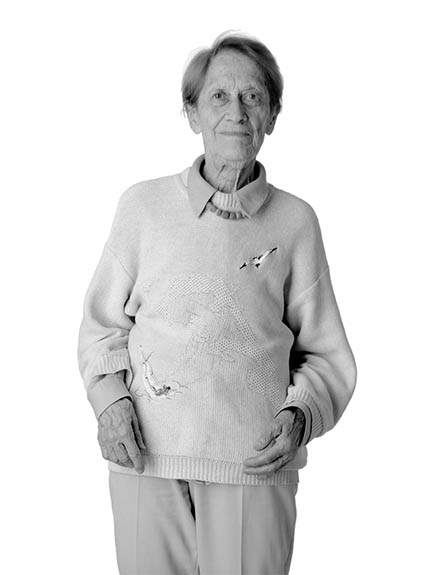| marie-hélène le ny |
|
photographist |
|
My first research concerned Algerian workers in France. I went to live in Montreuil, where Algerians were living in squalid furnished hotels. Appointed by the CNRS, I went to remote rural areas of Algeria to better understand their movements. In 1956 I wrote a book in which I described their situation, similar to the fate of French workers in the 19th century. Revolted about laws which discriminated women – including the Napoleonic Code – I started to carry out research on the destiny of women and published a "Que sais-je ?" book on feminism in 1979. Disturbed by the consequences of military-industrial alliances, I have campaigned throughout my entire life to reconcile feminism and anti-militarism. In "Surarmement, pouvoir, démocratie", I developed the way in which the patriarchal system uses the notions of national security and national defence, and the production and sale of weapons, to oppress people, in particular women.” |
|
||
|
Andrée
Michel, |
|||
|
|
|
|
